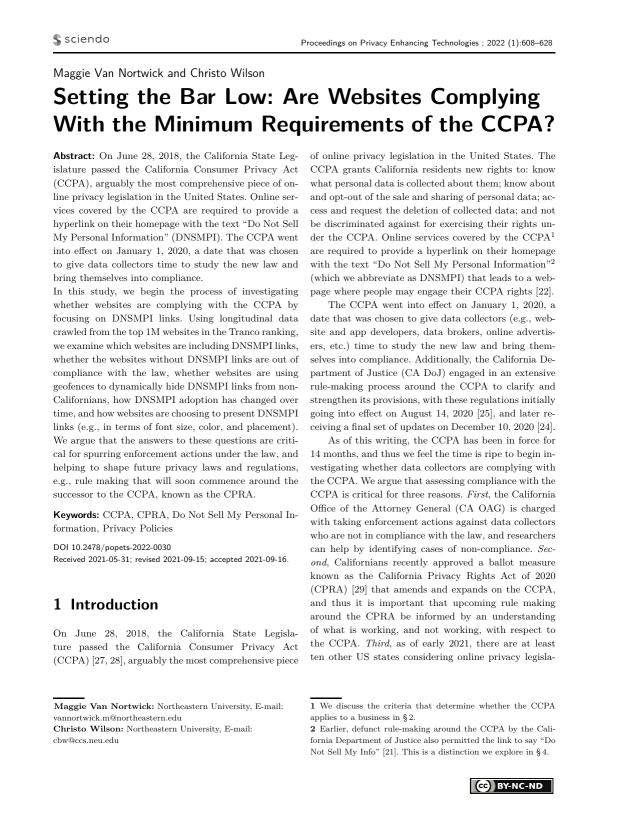Setting the Bar Low: Are Websites Complying With the Minimum Requirements of the CCPA?
Authors: Maggie Van Nortwick (Northeastern University), Christo Wilson (Northeastern University)
Volume: 2022
Issue: 1
Pages: 608–628
DOI: https://doi.org/10.2478/popets-2022-0030
Abstract: On June 28, 2018, the California State Legislature passed the California Consumer Privacy Act (CCPA), arguably the most comprehensive piece of online privacy legislation in the United States. Online services covered by the CCPA are required to provide a hyperlink on their homepage with the text “Do Not Sell My Personal Information” (DNSMPI). The CCPA went into effect on January 1, 2020, a date that was chosen to give data collectors time to study the new law and bring themselves into compliance. In this study, we begin the process of investigating whether websites are complying with the CCPA by focusing on DNSMPI links. Using longitudinal data crawled from the top 1M websites in the Tranco ranking, we examine which websites are including DNSMPI links, whether the websites without DNSMPI links are out of compliance with the law, whether websites are using geofences to dynamically hide DNSMPI links from nonCalifornians, how DNSMPI adoption has changed over time, and how websites are choosing to present DNSMPI links (e.g., in terms of font size, color, and placement). We argue that the answers to these questions are critical for spurring enforcement actions under the law, and helping to shape future privacy laws and regulations, e.g., rule making that will soon commence around the successor to the CCPA, known as the CPRA.
Keywords: CCPA, CPRA, Do Not Sell My Personal Information, Privacy Policies
Copyright in PoPETs articles are held by their authors. This article is published under a Creative Commons Attribution-NonCommercial-NoDerivs 3.0 license.


